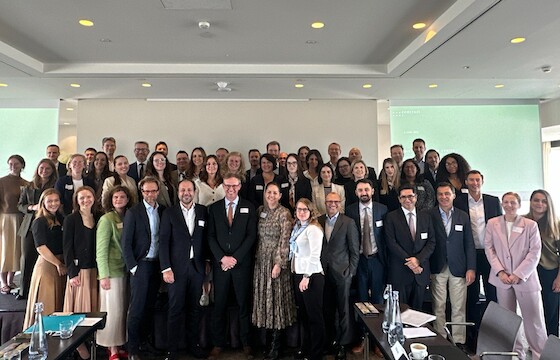What?
An “online marketplace” is an e-commerce site that offers multiple products from many different sellers which connects merchants and potential customers with a view to enabling direct purchases. Over the last decade online marketplaces (such as Amazon and eBay) have become an important sales channel for both suppliers and retailers selling their products online.
Despite the significant benefits that result from online marketplaces in facilitating the ability of retailers to sell their products online and the associated consumer benefits, suppliers of specific products may choose to restrict the freedom of a retailer to use this particular online sales channel — through a marketplace ban — for various reasons. Examples include the protection of brand image, positioning of a brand, the aim of ensuring sufficient support services to the customer or in order to allow the retailer to maintain a direct relationship with customers.
An online marketplace ban should be distinguished from an absolute prohibition on a distributor to sell the contract goods online. The latter is considered to be a restriction by object within the meaning of Article 101(1) TFEU if it is not objectively justified.
Rules until 31 May
Article 4(b) of the current VBER, which will expire on 31 May 2022, prohibits agreements or concerted practices that have as their object the restriction of brick-and-mortar or online sales by a buyer party to the agreement or its customers, in as far as those restrictions relate to the territory into which or the customers to whom the buyer or its customers may sell the contract goods or services.
As regards online sales, paragraph 54 of the current Vertical Guidelines provides that a supplier “may require that its distributors use third party platforms to distribute the contract products only in accordance with the standards and conditions agreed between the supplier and its distributors for the distributors' use of the internet. For instance, where the distributor's website is hosted by a third party platform, the supplier may require that customers do not visit the distributor's website through a site carrying the name or logo of the third party platform”. With this somewhat opaque language, the Commission indicated that it would block exempt a requirement by the supplier on its buyers to use their own electronic shopwindow rather than to sell the supplier’s products via online marketplaces.
This was confirmed by the European Court of Justice in the Coty case (Case C-230/16). In that case, the Court first confirmed that the qualification of a selective distribution system as purely qualitative – making that it escapes the prohibition of Article 101(1) TFEU – is not lost when a supplier imposes a marketplace ban on its authorised distributors, at least not to the extent that the products concerned are luxury goods and the ban meets with the Metro criteria, meaning a.o. that it must be proportionate to preserve the luxury image of those goods. In addition, irrespective of the nature of the selective distribution system (purely qualitative or quantitative — see, on this distinction, DLC Countdown no. 19), the Court confirmed that a marketplace ban does not amount to a customer or territorial restriction in the sense of Article 4(b) of the current VBER.
The future as of 1 June 2022?
The new VBER and Vertical Guidelines, entering into force on 1 June 2022, clarify and consolidate the existing practice and case law. First, it is useful to flag that the list of hardcore restrictions (Article 4(e) new VBER) now includes the “prevention of the effective use of the internet” as a separate hardcore restriction that may be relevant to any distribution system (selective, exclusive or open distribution).
With respect to luxury goods forming part of a purely qualitative selective distribution system, paragraph 150 of the new Vertical Guidelines incorporates Coty and states that a ban on the use of online marketplaces may be proportionate and comply with the Metro criteria so long as it does not indirectly prevent the effective use of the internet for sales to particular territories or customers. It does not do so where the authorised distributors remain free to operate their own online store and to advertise online in order to raise awareness for their online activities. In such circumstances, an online marketplace ban will be proportionate and fall outside of the scope of Article 101(1) TFEU, so that no further analysis under the new VBER is required.
Under the regime of the VBER, paragraph 208 of the new Vertical Guidelines does away with the previously somewhat opaque language and provides that “a direct or indirect ban on the use of online marketplaces” can benefit from the block exemption, provided again it does not run counter to the requirement of Article 4(e) new VBER regarding the effective use of the internet by buyers for the purposes of selling goods or services online. Also here, the Guidelines state that this will generally not be the case where the buyer remains free to operate its own online store and to advertise online.
The application of the new VBER continues to be subject to a double market share limit of 30%. Between paragraphs 338-342, the new Vertical Guidelines provide guidance for the assessment of restrictions on the use of online marketplaces in individual cases, where either or both parties exceed that market share limit.
In practice?
The consolidation and clarification of the existing practice and case law in the new Vertical Guidelines bring clarity with regard to the permissibility of online marketplace bans and will surely lead to a more uniform assessment of such restrictions throughout the EU.
Assessment?
The clarifications in the new Vertical Guidelines on the appropriate assessment that should be undertaken for online marketplace bans, both in- and outside the VBER, are to be welcomed. Outside the VBER, the new Vertical Guidelines now contain guidance in respect of online marketplace bans in the context of purely qualitative selective distribution (so outside Article 101(1) TFEU) and also in situations where the supplier or buyer or both exceed the market share limit of 30%.
Want to know more? Stay tuned...
Counting down towards 1 June 2022 we aim to provide you with regular updates and the necessary legal knowhow in order to fully prepare your business for the future. Please also check out the Distribution Law Center platform and our LinkedIn page for much more information on the laws governing vertical agreements, covering both competition and commercial law. 27 specialized teams from all over the EEA are working hard to turn the platform into your favourite source of guidance and information.
A translation of this Countdown newsletter is available in the following languages: Czech, Portuguese, Romanian, Slovak, Swedish.
Read the available DLC Countdown newsletters on the changes to be expected here.





Sign in to post comments